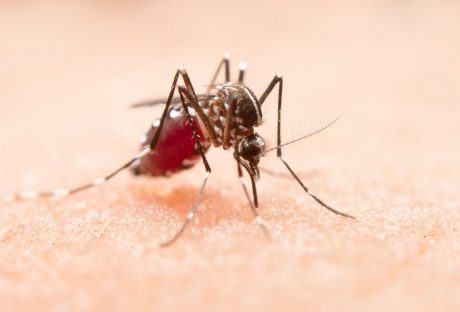Tag: Mosquito control sprays

Timing Is Key: Unveiling The Best Moments To Combat Mosquitoes And Ticks
In the quest for a peaceful, healthy living and working environment, one often overlooked aspect is the timing of pest control measures. This statement is particularly true in the battle against common irritants like mosquitoes and ticks, which are not just sources of discomfort but can also be carriers of serious diseases. Mosquito and tick control's effectiveness is significantly enhanced when implemented at the right time. This guide provides valuable insights into the best moments for controlling these pests, ensuring your homes and offices remain safe havens. Understanding The Enemy: Behaviors Mosquitoes and ticks exhibit distinct behaviors and preferences. Mosquitoes are typically most active during dawn and dusk and prefer humid environments. They breed in stagnant water and can become a significant problem if not controlled. Ticks, conversely, lurk in tall grass and wooded areas and show heightened activity in warmer months. Targeting mosquitoes in the early morning or late evening, when they are most active, can lead to more impactful results. For ticks, focusing on prevention in spring and summer, when they are breeding and most active, is vital to controlling their population. The Best Time For Spraying Spraying in the late afternoon or early evening, just before mosquitoes become most active, ensures that the maximum number of pests are exposed to the treatment. This timing allows the spray to settle and take effect at the right moment. In the case of ticks, the best time for treatment is during late spring and early summer. Applying treatments during this period targets nymph ticks, which are particularly active and pose a significant risk. Weather Considerations The success of pest control efforts is closely tied to weather conditions. Mosquito control sprays, for instance, are less effective in windy or rainy conditions as these elements can dilute or disperse the treatment, reducing its potency. Ideal tick control is achieved in dry weather, as humidity and rain can affect the application and longevity of products. Therefore, it's advisable to choose a clear, dry day for the application of tick treatments. Frequency Of Treatment Maintaining a consistent treatment schedule is crucial. For mosquitoes, regular treatments every 4-6 weeks during their active season can significantly curb their presence. For ticks, a bi-monthly treatment during their peak season is recommended. Regular treatments disrupt the life cycle of ticks, preventing their proliferation and reducing the likelihood of infestations. Natural vs. Chemical Treatments Choosing between natural and chemical treatments depends on several factors, including the severity of the infestation and personal preferences. Natural remedies, like essential oils and plant-based products, can be effective against mosquitoes and ticks. However, these may require more frequent application and are generally less potent than chemical options. Here are three oils that can be used as natural pest repellents: · Lemon Eucalyptus Oil: Derived from the leaves of the lemon eucalyptus tree, this oil is known for its effectiveness in repelling mosquitoes and ticks. · Lavender Oil: Besides its calming fragrance, lavender oil is also recognized for repelling mosquitoes and ticks. · Tea Tree Oil: This oil, extracted from the leaves of the tea tree, is praised for its antiseptic properties and also acts as a natural repellent against these pests. Chemical treatments offer longer-lasting protection and are often more effective in controlling larger infestations. They should, however, be used judiciously and responsibly, considering the safety of all inhabitants, including pets and children. Here are three chemical substances that can be used as pest repellents: · DEET (N, N-Diethyl-meta-toluamide): Probably the most well-known chemical repellent, DEET is widely used for its effectiveness against a wide range of pests. · Picaridin: Known for being less irritating than DEET, picaridin is another effective chemical repellent against mosquitoes and ticks. · Permethrin: Although not typically used on the skin, permethrin can be applied to clothing, footwear, and gear to protect against mosquito and tick bites. It's important to note that the effectiveness and safety of these oils and chemicals can vary based on concentration and method of application. Always follow manufacturer guidelines and consider any personal or environmental health concerns when choosing a repellent. DIY vs. Professional Services DIY pest control can be tempting, but it requires a good understanding of the products and their proper application. Incorrect usage can not only reduce effectiveness but also pose health risks. Professional pest control services provide expertise and more potent solutions. They offer a comprehensive approach, often including an infestation assessment, treatment application, and follow-up services. While costly, professionals can save time and ensure a thorough approach. Safety Precautions Safety should be a primary concern, whether opting for DIY methods or professional services. When applying treatments, wearing appropriate protective gear and adhering strictly to the product's instructions are crucial. Particularly with chemical treatments, it's essential to keep children and pets away from the treated areas until they're safe. Always ensure that treated areas are well-ventilated and avoid contact with the skin and eyes. Integrating Pest Control Into Your Routine Integrating pest control into your regular home maintenance routine can significantly reduce the presence of mosquitoes and ticks. This process not only includes the application of treatments but also preventive measures. Regularly clearing standing water, maintaining your yard, and keeping grass trimmed can discourage these pests from breeding and residing in your space. Additionally, regular checks and maintenance of your environment can minimize the need for frequent treatments, making your pest control efforts more efficient and sustainable. The Role Of Technology In Pest Control Advances in technology have introduced innovative and more environmentally friendly pest control solutions. These include ultrasonic devices, which repel pests using high-frequency sound waves, and biological treatments that use natural predators or pathogens to target specific pests. Staying informed about the latest developments in pest control technology can provide more effective, sustainable, and eco-friendly options for managing pests. Preparing For The Off-Season Even during off-peak seasons, when pest activity is low, preparing for their return is important. Start by winterizing your outdoor spaces and end by strategizing your pest control approach for the upcoming season. Conducting an off-season audit of potential breeding sites and preparing a proactive pest control plan can significantly reduce severe infestations in warmer months. Conclusion Effective mosquito and tick control transcends the mere use of products; it hinges on understanding and capitalizing on the right timing. Aligning your pest control strategies with the behavioral patterns of these pests and considering factors such as weather, treatment frequency, and safety can create a more comfortable, healthy, and pest-free environment in your homes and offices. In the realm of pest control, remember that timing is, indeed, key to success. Read Also: Top 4 Must-Have Appliances In Every Kitchen Top 10 Effective Tips To Keep Your Home Safe 5 Tips To Safeguard Your Home From Intruders
READ MOREDetails















